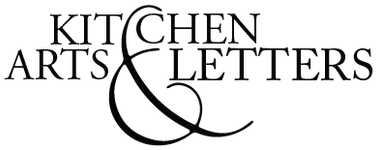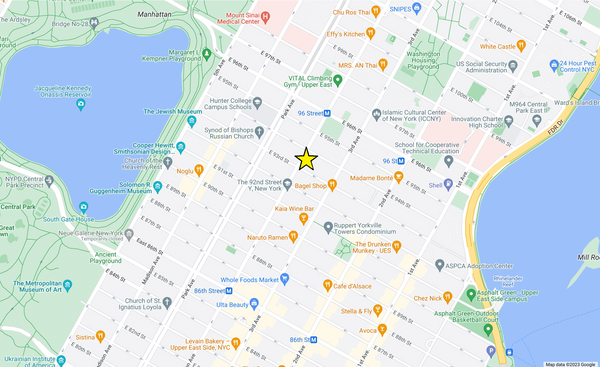
The Nach Waxman Prize
See the 2024 shortlist of nominees here.
The Nach Waxman Prize highlights a book of scholarship which invites the general public to seriously consider issues in culinary and beverage history, anthropology, sociology, linguistics, geography, and related fields. The prize includes an award of $5,500 and is given each spring for a book published in the previous calendar year.
The prize winning book must be:
- Likely to attract new readers to the field of food scholarship or to alter significantly the direction of future research
- Well written from the point of view of both prose and accuracy
- Accessible to a motivated general audience reader; that is, someone who is interested in the subject but not necessarily informed about the current state of research or issues within the field. For example, references to “Ibbot’s theory of reductive confluence,” must explain such a concept rather than assuming it is understood by the audience
- Originally published in English in the United States during the relevant year. Translations of works originally published in other languages are eligible; authors may be citizens of any country. Revisions of previously published books are not eligible.
The winner is chosen by a panel of three judges who represent a varied range of fields of inquiry, perspectives, cultural viewpoints, and personal experience.
The judges will announce a short list of five outstanding works in April of each year, with the winner declared in May. Any book written, co-written, or edited by a judge is ineligible for consideration.
The Judges
Darra Goldstein, the founding editor of Gastronomica and editor in chief of the Oxford Research Encyclopedia of Food Studies, has won numerous prizes for her work in food, including James Beard and IACP awards. She serves as series editor of California Studies in Food and Culture from the University of California Press and is also the Willcox B. and Harriet M. Adsit Professor of Russian, Emerita at Williams College, where she moved beyond her initial training in Russian literature to teach courses in food studies. Goldstein has consulted for the Council of Europe on using food as a tool for tolerance and diversity and has held distinguished fellowships in food studies at the University of Toronto and the University of Melbourne. She currently sits on the board of the Julia Child Foundation for Gastronomy and the Culinary Arts and is a member of the advisory “Kitchen Cabinet” of the Smithsonian National Museum of American History.
Morna Livingston is an architectural photographer specializing in gravity water systems and cultural landscapes. An avid cook from the time of her first trip to France, later travel took her to India, Italy, the Middle East, Africa, South America and Asia. Here she tasted new foods and photographed markets, gardens, and farm landscapes. Currently she lives in an 18th century house, and during the cold weather indulges in a love of fireplace cooking using antique tools.
Mayukh Sen is the author of Taste Makers: Seven Immigrant Women Who Revolutionized Food in America (2021), which was named a best book of 2021 by NPR, one of the Wall Street Journal’s favorite books of 2021, a New York Times Editors’ Choice Pick, and longlisted for the 2022 Brooklyn Public Library Book Prize. He has won a James Beard Award and IACP Award for his food writing, and his work has been anthologized in three editions of The Best American Food Writing. His next book, Love, Queenie, a biography of the Indian-born Old Hollywood actress Merle Oberon, is forthcoming from W.W. Norton & Company in winter 2025. He has taught food writing at the New York University Arthur L. Carter Journalism Institute and Columbia University’s creative writing program, and he lives in Brooklyn.
Entry
Publishers may enter a maximum of three books published in the relevant calendar year. There is no entry fee, but a copy of each book entered must be sent to each of the judges.
Authors and outside editors may enter one book they have written, co-written, or edited in the relevant calendar year. There is no entry fee, but a copy of the book must be sent to each of the judges.
Email waxmanprize@kitchenartsandletters.com to officially enter and receive instructions for sending books to the judges. Entry emails must be sent by December 10, 2024 and books must be shipped by December 16, 2024.
About Nach Waxman
The Prize is named for Nach Waxman (1936-2021), the founder of Kitchen Arts & Letters bookstore, where he ardently championed the work of food and beverage scholars, as well as other authors who explored and illuminated the culture behind cooking, eating, and drinking.
Trained as an anthropologist at Cornell, the University of Chicago, and Harvard, Waxman spent more than twenty years as a book editor at Macmillan, Harper & Row and Crown before opening Kitchen Arts & Letters in 1983. Under his leadership, the store became “a go-to source for all kinds of culinary history and customs,” in the words of The New York Times.
His wife, Maron L. Waxman, says Nach always wanted to understand the how and why things came to be the way they are. Wherever we traveled, he was interested in the terrain, the architecture, the food, and how people lived. A typical stop would be breakfast at what he called the old geezer coffee shop, where he could get a sense of the town from the folks lingering over their coffee and the day’s events.
Kitchen Arts & Letters managing partner Matt Sartwell notes, “If anyone asked Nach to tell them about an unusual aspect of the store, his first examples would be books from the scholarship sections. He was determined that Kitchen Arts & Letters would always be known as more than a cookbook store. By creating this prize we’re trying to support and encourage authors who ask interesting questions about how and why we eat and drink what we do.”

